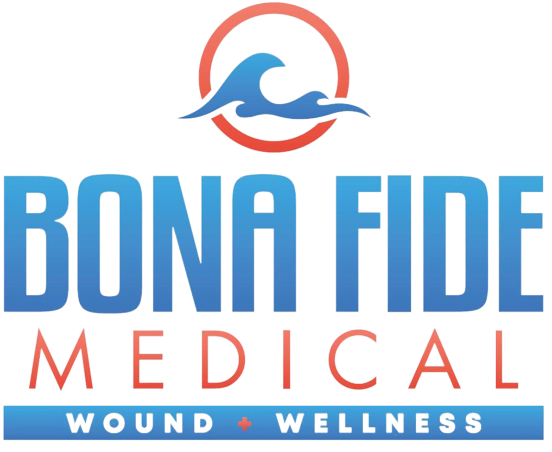Conditions We Treat
-
Diabetic foot ulcers are open sores that develop on the feet of individuals with diabetes. They often occur due to poor circulation and nerve damage, making proper wound care crucial to prevent complications.
Treatment may include wound debridement, infection control, nutrition guidance, and offloading pressure.
-
Burns damage the skin and underlying tissues due to exposure to heat, chemicals, electricity, or radiation. Proper wound care is essential to prevent infection, reduce scarring, and promote healing.
Treatment may include debridement, dressing changes, pain management, and sometimes skin grafts for severe burns.
-
Pressure injuries, also known as bedsores or pressure ulcers, develop when prolonged pressure on the skin leads to tissue damage. These injuries often occur in individuals who are in a wheelchair, bedridden, or unable to change positions for extended periods of time.
Treatment may include debridement, dressing changes, incision and drainage, and skin grafts.
-
Arterial ulcers result from inadequate blood supply to tissues, typically caused by narrowed or blocked arteries. These ulcers often appear on the lower legs or feet and require specialized treatment to improve circulation.
Treatment may include debridement, skin grafts, and dressings.
-
Venous ulcers stem from impaired blood flow in the veins, leading to fluid buildup and tissue damage. These ulcers usually form on the lower legs and can be managed with proper wound care.
Treatment may include compression therapy and elevation to manage swelling.
-
Osteomyelitis is a serious infection that affects the bones. It can occur due to the spread of bacteria from another infection or through an open wound. Osteomyelitis can cause bone pain, inflammation, and difficulty moving the affected area. Effective treatment is essential to prevent the infection from spreading further and causing long-term damage to the bone. Proper wound care and antibiotics are often part of the treatment plan for osteomyelitis.
Treatment may also include infection control and surgical intervention.
-
When surgical incisions separate, or dehisce, wound care may be necessary to prevent infection. Managing underlying factors contributing to poor healing will aid in wound closure.
-
Non-healing wounds refer to wounds that do not progress through normal stages of healing. They can result from various factors like poor circulation, infection, or underlying health issues.
Infected wounds could be a result from animal or insect bites, trauma, or other injuries.
Treatment may include simple dressing changes to potential surgical intervention.
-
Conditions like cellulitis, erysipelas, hidradenitis suppurativa, and abscesses may require wound care treatment and antibiotics to facilitate healing.
-
Outpatient orthopedic conditions, like arthritis, fracture care, sports injuries, musculoskeletal pain, sprains, and strains.
